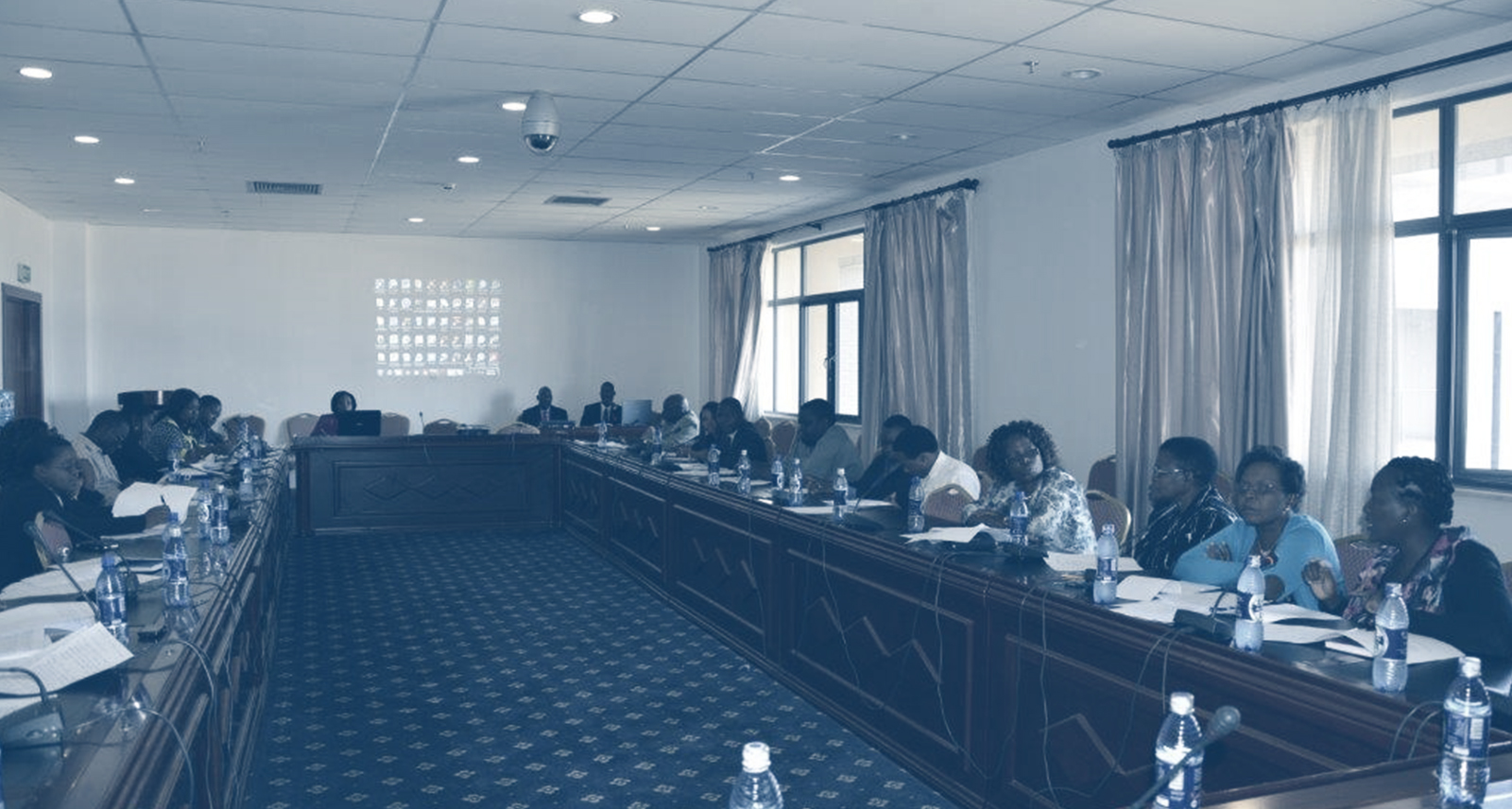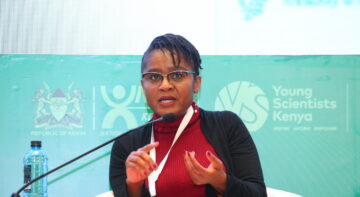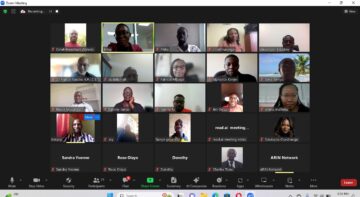Blogs

Evidence-informed decision-making is an approach to policy decisions that seeks to ensure that decision-making is informed by the best available research evidence. The critical functions of the Malawi Parliament of oversight and scrutiny, representation and legislation make it necessary to promote and enable an increased focus on using research and other credible evidence in the delivery of these functions.
The National Assembly Strategic Plan (2010-2016) commits to strengthening institutional capacity in order to ensure that members of parliament (MPs) receive a high level of support and assistance. In addition, the Malawi National Assembly recognizes that in order to increase the capacity of members to hold the Executive to account, the National Assembly administration needs to provide members with increased and improved research services.
A recent workshop organised by the Parliament of Malawi and the African Institute for Development Policy (AFIDEP), however, revealed that the translation of these commitments into action faces many challenges. The workshop was held at the parliament under the AFIDEP-led SECURE Health programme on June 9, 2016, and was attended by technical staff as well as parliament leadership. In this blog, we reflect on the key highlights of the workshop to understand the gaps in the ecosystem of evidence use within the Malawi parliament.
Supportive infrastructure for enabling evidence use is still lacking
The workshop decried the weak infrastructure for supporting evidence use. Accessing evidence requires enabling infrastructure such as reliable Internet connectivity, and functional library with relevant journals and online subscriptions to evidence databases, among others. Lacking or poor Internet connectivity at the Malawi parliament remains a major barrier to evidence use. In addition, inadequate computers and lacking up to date website and Intranet hamper exchange of information within and outside parliament. For instance, to make sure that MPs are deliberating on up-to-date issues, there is a need to have the Hansard typed and shared with the MPs for their prior reading before they meet the next day. This is currently not possible due to poor network and inadequate writing gadgets.
Also, the lack of an Intranet hinders real-time exchange of information between MPs and research staff as well as between parliamentary clerks and research staff. For instance, the presence of an Intranet would make it possible for MPs and committee clerks to post information requests to researchers and library staff and receive feedback in real-time. In addition to enabling exchange of real-time information, the Intranet platform would store queries and responses provided for future references by other MPs and staff.
The Malawi parliament has a library, but it does not adequately serve the needs of the National Assembly. This is due to: shortage of staff, there are only 2 librarians; it relies on outdated print materials with limited access to current and online documents. Currently the library does not have any journal subscription for current evidence on development issues.
Staffing remains inadequate: 3 researchers serving 193 MPs
The workshop highlighted the need for the research unit to be more proactive, visible and easily accessible. But noted that this can be tricky and challenging for the 3 researchers who are expected to serve 193 MPs. The staffing inadequacy has meant that although parliament has 20 committees, the 3 researchers only support 6 of these committees, with each of them charged with supporting 2 committees, namely: the HIV and AIDS; Natural Resources; Health; Media; Women Caucus and Governance Assurance. As such, 14 committees do not receive any research support. Even with this shortage, the 3 researchers and the 2 library staff were urged to be more proactive in producing evidence summaries and briefs on major and topical policy issues to guide debates in the national assembly. For instance, the workshop urged the researchers and library staff to prepare a brief for MPs on topical issues like Hospital User Fees and Frequently Asked Questions by MPs. This would set a great precedence of arming MPs with evidence on issues being debated in parliament.
The workshop agreed that if the research unit is to cater for all the committees and make the desirable impact, there is a need to seriously take a look at this human resource challenge. In the presence of a general government recruitment freeze, there are a number of options to alleviate this challenge: the use of interns on a specific issue and for a period of time, training all the officers from the Parliamentary services as well as the technical officers from the Corporate services on evidence-informed decision-making (EIDM), and orientating MPs on EIDM. The workshop also suggested that parliament could consider allocating the few researchers to the country’s priority areas driving the National Development Agenda, including Agriculture and Food Security; Energy, Industrial Development, Mining, and Tourism; Transport Infrastructure and Nsanje World Inland Port; Education, Science and Technology; Public Health, Sanitation, Malaria and HIV and AIDS Management; Integrated Rural Development; Green Belt Irrigation and Water Development; Child Development, Youth Development and Empowerment; and Climate Change, Natural Resources and Environmental Management.
The culture of evidence use is starting to improve, but there is still a long way to go
Workshop discussions indicated that there is generally limited interest in using research evidence among decision-makers and poor understanding of the role of research evidence in decision-making. Workshop participants noted that the SECURE Health programme has stimulated considerable interest in research evidence, especially among the technical staff and some of the MPs belonging to the health committee, but that there is need to stimulate similar interest among more MPs in parliament.
Meaningful relationships between researchers and parliamentary committee clerks is needed
The workshop decried the weak relationship and exchange of information between committee clerks and researchers as well as the library staff. Relationships are critical components in the pathway to increased evidence use in decision-making processes. Workshop participants argued that many a times it is considered as though committees belong to the assigned clerks only, a situation that hampers constant exchange of information with researchers and library staff. The workshops called on committee clerks to regularly share committee agendas with researchers and library staff so that they can proactively prepare evidence briefs for upcoming issues that committees will be discussing, and share these briefs ahead of the actual committee discussions on the issue to inform discussions and decisions made by committees.
Moving forward, what changes will be undertaken to tackle the challenges?
The purpose of the workshop was to facilitate the sharing lessons learnt by 2 parliament staff who benefited from a one-month internship at the UK Parliament facilitated by UK Parliamentary Office for Science and Technology (POST) as part of the SECURE Health efforts to strengthen evidence use in the Malawi parliament. The one-month internship sought to build on technical skills acquired from the SECURE Health programme on EIDM programme implemented in 2015. The 2 parliament staff, Mr Kondwani Chikafa and Ms Velia Manyonga, will implement a number of activities drawn from the internship experience to improve evidence uptake in the Malawi parliament, including: working with IT section on the development of a database for all the inquiries and the responses provided to members; developing briefs as background information for Committees and Bills, orientating other officers from the Parliamentary services as well as the technical officers from the Corporate services on EIDM, as well as orientating more MPs on EIDM, among others.
Related Posts





